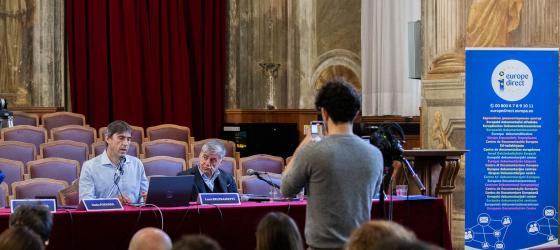LAURA is a teaching project to address EU sustainability issues and strategies in a three-year
undergraduate class within an economics programme. Environmental assessment and ecosystem
accounting are used as conceptual tools for teaching and understanding EU environmental
strategies and the Green Deal. The project introduces university students to a dynamic view of the
contribution of different disciplines to the debate on the Green Deal and environmental
assessment and accounting through seminars and experimental applications.
The LAURA project is at the centre of the green ecological transition debate in the general
reflection on climate neutrality goals, the economic development model, and the legacy we will
leave to future generations.
Current curricula in environmental disciplines, aimed at university students, are rarely designed
based on EU policies and strategies, as they mostly refer to a generic set of theories and methods.
Specific goals are:
1. Increase Bachelor students' introductory knowledge and basic skills on the strategic framework
of EU environmental policies; how the value creation process is linked to environmental and social
values and how these are measured and accounted for
2. Replacing the fragmented viewpoints of environmental-related disciplines on valuation and
accounting with an integrated discipline that is multidisciplinary and validated by a broad range of
experts from different fields
3. Promote a debate on appropriate resources and teaching methods on these topics, both for
secondary and university education
4. Involve outreach and educational work beyond academia, by addressing secondary school
teachers and students and the general public (policy makers, stakeholders' representatives,
citizens and general public)
LAURA rests on the experience of the Jean Monnet Module "EVA" (2019), which first introduced
the notion of an integrated economic-ecological teaching approach as the framework for
developing competencies related to the European Green Deal and the overall set of EU
environmental policies.
EVA provided the structure around which experts in related fields convened to develop innovative
educational content. The process had implications beyond its immediate educational outcomes,
providing an invaluable opportunity for building the multidisciplinary teaching competencies
required to sustain the EVA approach over time. Thus, the proposal of a chair is meant to
represent the next step to a fully integrated discipline held by a single professor, with external
contributions being delivered in the form of seminars and additional activities.
